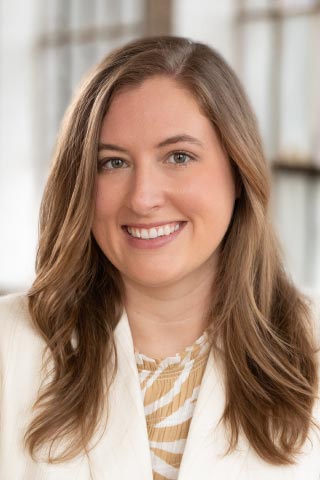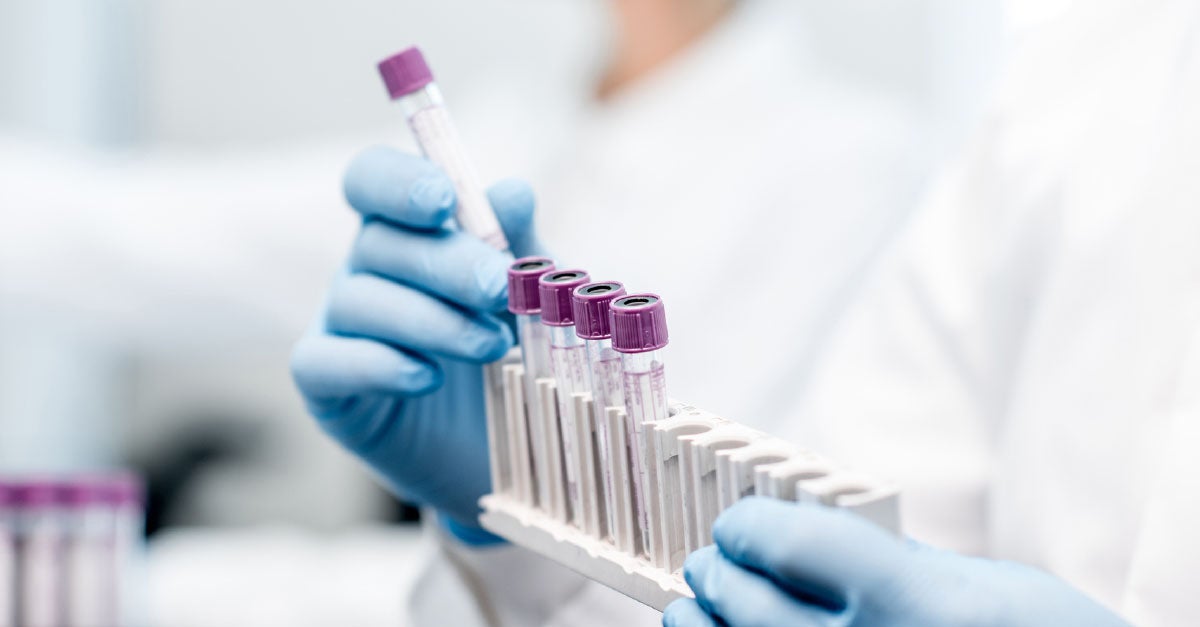Stories
Embracing imperfection and overcoming the fear of failure
Q: Can you describe your role at Mirati?
A: As a Regional Medical Affairs Director, based in Minnesota, I’m responsible for providing information on Mirati, pre-clinical and clinical assets in development using my scientific, clinical, and therapeutic area acumen. I contribute to the development and execution of Mirati’s medical vision and strategy for the North Central region, which incorporates collaborating with & educating clinicians, researchers and healthcare systems related to scientific/clinical data and new biomedical research. I engage with key thought leaders, healthcare providers, and clinical research investigators about the oncology landscape and emerging therapeutics, address scientific and medical inquiries, & share actionable insights/learnings to contribute to Mirati’s medical strategy. I’m also a cross-functional partner, collaborating internally with team members to support scientific congresses and professional society meetings, lead additional medical activities, & support corporate goals.
Q: Walk us through the career path that brought you to Mirati and what made you decide to pursue a career in pharma?
A: My journey to discover my passion for biomedical sciences, patient-driven research, and medical science education has been anything but direct. Many would consider that a weakness, but in all truthfulness, I am grateful for taking the road less traveled. Why, because I have seized opportunities to venture beyond my comfort zone, build lasting cross-cultural relationships, overcome unexpected challenges and adversity, and gain invaluable knowledge and firsthand experience uniting my interests in medicine, science, and education.
Originally my heart was set on becoming a physician. Having not been exposed to translational research or familiar with professional training opportunities bridging the gap between science and medicine, I had not considered nor imagined I would later achieve my PhD in Cancer Biology. However, during my accelerated pre-medical training at Columbia Medical School’s Summer Medical and Dental Education Program, I was inspired to learn more about evidence-based medicine and research after engaging with leading scientists who contributed to the development of the HPV vaccine to prevent cancer-causing infections. From that moment forward, I sought mentorship and research training from the cell, molecular, and medical microbiology faculty at Northern Michigan University (NMU) who helped me develop laboratory skills, research experience, and scientific knowledge.
However, I still desired to better comprehend the value and importance of research in improving public health, which led me to venture abroad, providing me with a transformative experience of a lifetime. I was one of seven undergraduate students nationwide selected to participate in the National Science Foundation’s International Research Experience for Undergraduates at the University of Cape Coast (UCC) in Ghana, West Africa. I had the privilege of joining a cross-cultural multidisciplinary research team in bioprospecting potentially nutritional plants and determining their contribution to human health. I improved my biochemical knowledge, experienced the challenges of conducting research as a woman in a developing country, and immersed myself in Ghanaian culture. When research was not possible due to lack of electricity, I teamed up with a visiting optometrist from the Netherlands who led a professional training program for UCC optometry students to bring preventative eye screening, affordable treatment and glasses to children and teachers in primary schools while overcoming cultural, economic, and social barriers. After this intensive and eye-opening experience, I returned to the United States as a more open-minded, ethical, and driven scientist in the making, with a newfound enthusiasm for science education, and a greater appreciation not only for research, but the resources, technology, and educational opportunities.
These experiences led to a change of heart. Rather than focusing on applying to medical school, I chose to embrace my collaborative nature, ambition to invest in future generations, and motivation to use my knowledge and experience in science to support youth, families, and communities. I gained experience co-teaching and tutoring at NMU and local primary schools while earning my teaching certificates and bachelor’s degree in biology, chemistry, and integrated sciences. With hopes set on having a more immediate impact on the lives of others, I dedicated a year to teaching, coaching, and mentoring 6-12th grade science students in a rural community. This provided me time to reflect on my life experiences and education, while further serving the community, being inspired by students, and growing professionally. I felt a renewed confidence and enjoyment in teaching molecular biology and life sciences while recognizing the limitations of our education system. Teaching helped me create a stronger work ethic, renewed my commitment to making a difference in the lives of others, and helped me realize that my true calling needed to include science, education, and medicine. Achieving my PhD and leading biomedical research projects at the Mayo Clinic, then University of Minnesota has facilitated my involvement in cutting-edge science and clinical research to improve global healthcare by addressing the needs of patients with complex diseases, contributing to medical science education, and advancing the discovery of novel therapeutics and biomarkers.
When I was introduced to Medical Affairs by a mentor and director of a local cancer center, I knew this was a field where I saw myself being part of a village that strives to address critical needs of patients with cancer, increase availability of life-saving treatments, bring hope to patients who have no options left, & improve healthcare disparities. With the support of a growing network of colleagues and friends I thrived in my first role as a Medical Science Liaison with a molecular diagnostics company shortly before I was recruited to Mirati Therapeutics. I knew I would be able to have an even greater opportunity to improve the lives of patients and caregivers, support providers and communities; as cancer affects all of us.
Q: Given the breadth of the industry, what inspired you to join Mirati? Were there any specific aspects of the company’s mission or culture that resonated with you?
A: What inspired me to join Mirati, goes beyond just learning about the vision and mission or reading about the organization’s commitment to patients and discovery. Rather, witnessing that everyone at Mirati embodied a strong culture of inclusion, continuous commitment to collaboration and innovation, while sharing a unified passion of bringing breakthrough therapies to transform the lives of patients with cancer. It was a powerful experience, and I knew at that moment I was joining the right team.
Q: This month we celebrate Hispanic Heritage Month. Can you tell us a bit about your cultural background and heritage? How has it shaped your perspective and approach to your work at Mirati?
A: Over time I have developed a greater understanding and appreciation for my cultural heritage, being of both European and Mexican descent, and grateful to my parent’s for passing down cultural traditions, and sharing stories about how my ancestors overcame adversity. Unfortunately, due to assimilation, racism, and discrimination, a great deal of our cultural heritage has been lost. Despite these challenges, I choose to embrace my Latin American roots, show up as my authentic self, and never lose sight of the obstacles my family endured for the advancement of future generations to follow. At Mirati and in my personal life, I strive to be an ally for others, by sharing my journey and experiences with mentees who faced similar challenges, with the hopes of empowering others to be their authentic selves. I also have a passion for educating about the importance of including people from racial and ethnic minorities in clinical trials. We can all make a difference in the lives of others, as you never know what someone is going through.
Q: Are there any Hispanic role models, mentors or figures from your heritage who have influenced your career or personal growth?
A: Unfortunately, growing up there was little diversity let alone many Hispanic role models in my community or schools. I was often the n=1 with the last name of Hernandez in my classes. However, I can remember strong and fierce Latinas emerging in music and acting, from Selena, Jennifer Lopez, to Shakira all who demonstrated the importance of perseverance, staying strong, and never giving up on your dreams.
Q: What is the best piece of advice you have received in your career? How did it change how you operate?
A: “Don’t fear failure; it’s necessary to learn, grow, and succeed.” By embracing imperfection and overcoming the fear of failure, we are no longer limiting our growth, but truly allowing us to find our own path in life through gaining new experiences, building resilience, and understanding that failure only truly happens when we give up. By following this advice, I have been able to discover my own path in life and enjoy the journey.
Q: What is your personal perspective on the importance of sustaining a culture of inclusion to strengthen, inspire and cultivate a culture of belonging at Mirati?
A: A culture of inclusion and belonging among any team or organization, is not only important for productivity, and the retention/recruitment of top talent, it is critical for building trust, respect, happiness and overall health. This type of environment inspires employees to follow their passion and fosters success.


